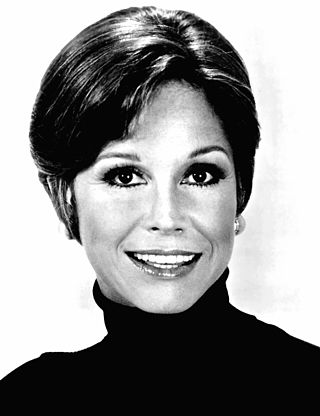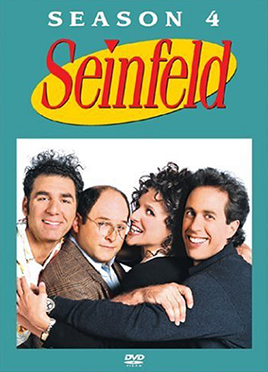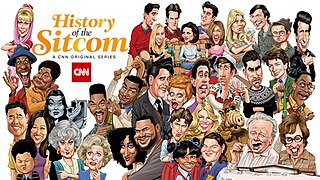History and differences
About 25 shows from the original list were featured during a special week on Nick at Night on Nickelodeon and TV Land. [1] [3] On the original list several shows, including I Love Lucy , The Mary Tyler Moore Show , The Dick Van Dyke Show , Seinfeld , Cheers , and The Odd Couple had multiple entries, but none did on the 2009 list. [3] The original list included 35 episodes from the 1950s and 1960s, while the 2009 list only included 10. [3] Over one-third of the new list first aired in the twelve years since the original list, including 14 from the most recent two years. [3] The June 2009 list included episodes as recent as the April 12, 2009, "Peekaboo" episode of Breaking Bad and the April 7, 2009, "Baptism" episode of Rescue Me , while the 1997 list included a two-month-old episode of The X-Files . [3]
CBS was the original broadcaster of 35 of the 1997 list members, including both of the top two: "Chuckles Bites the Dust" of The Mary Tyler Moore Show and "Lucy Does a TV Commercial" from I Love Lucy. [1] Several television series were represented by a different episode in 2009 than they were in 1997. The 2009 top rated show was "The Contest" from Seinfeld although in 1997 the show had been represented by "The Boyfriend" (number four) and "The Parking Garage" (number 33), instead of "The Contest". [3] Three of the top 10 1997 episodes were removed although the series continued to be represented by other episodes: "The $99,000 Answer" (number 6) from The Honeymooners , "Thanksgiving Orphans" (number 7) from Cheers ; and "Coast-to-Coast Big Mouth" (number 8) from The Dick Van Dyke Show. [3]
The 1997 list included detailed show descriptions for all episodes, while only a select few were accompanied by more than a single sentence in the ascending order 2009 list. [3] Only one of the thirteen contributors to the 2009 list was involved in the 1997 list. [3]

Cheers is an American television sitcom that aired on NBC from September 30, 1982, to May 20, 1993, for 11 seasons and 275 episodes. The show was produced by Charles/Burrows/Charles Productions in association with Paramount Television and was created by the team of James Burrows and Glen and Les Charles. The show is set in the titular bar in Boston, where a group of locals meet to drink, relax, socialize, and escape from their day to day issues.

Mary Tyler Moore was an American actress, producer, and social advocate. She is best known for her roles on The Dick Van Dyke Show (1961–1966) and especially The Mary Tyler Moore Show (1970–1977), which "helped define a new vision of American womanhood" and "appealed to an audience facing the new trials of modern-day existence". Moore won seven Primetime Emmy Awards and three Golden Globe Awards. She was nominated for the Academy Award for Best Actress for her performance in Ordinary People. Moore had major supporting roles in the musical film Thoroughly Modern Millie and the dark comedy film Flirting with Disaster. Moore also received praise for her performance in the television film Heartsounds. Moore was an advocate for animal rights, vegetarianism and diabetes awareness and research.

Seinfeld is an American television sitcom created by Larry David and Jerry Seinfeld that originally aired on NBC from July 5, 1989, to May 14, 1998, with a total of nine seasons consisting of 180 episodes. Its ensemble cast stars Seinfeld as a fictionalized version of himself and focuses on his personal life with three of his friends: best friend George Costanza, former girlfriend Elaine Benes, and neighbor from across the hall, Cosmo Kramer.

The Mary Tyler Moore Show is an American television sitcom created by James L. Brooks and Allan Burns and starring actress Mary Tyler Moore. The show originally aired on CBS from September 19, 1970, to March 19, 1977. Moore portrayed Mary Richards, an unmarried, independent woman focused on her career as associate producer of a news show at the fictional local station WJM in Minneapolis. Ed Asner co-starred as Mary's boss Lou Grant, alongside Gavin MacLeod, Ted Knight, Georgia Engel, Betty White, Valerie Harper as friend and neighbor Rhoda Morgenstern, and Cloris Leachman as friend and landlady Phyllis Lindstrom.

The Dick Van Dyke Show is an American sitcom created by Carl Reiner that initially aired on CBS from October 3, 1961, to June 1, 1966, with a total of 158 half-hour episodes spanning five seasons. It was produced by Calvada Productions in association with the CBS Television Network, and was shot at Desilu Studios. Other producers included Bill Persky and Sam Denoff. The music for the show's theme song was written by Earle Hagen.

The Honeymooners is an American television sitcom that originally aired from 1955 to 1956, created by and starring Jackie Gleason, and based on a recurring comedy sketch of the same name that had been part of Gleason's variety show. It follows the lives of New York City bus driver Ralph Kramden (Gleason), his wife Alice, Ralph's best friend Ed Norton and Ed's wife Trixie as they get involved with various schemes in their day-to-day living.
A series finale is the final installment of an episodic entertainment series, most often a television series. It may also refer to a final theatrical sequel, the last part of a television miniseries, the last installment of a literary series, or any final episode.

St. Elsewhere is an American medical drama television series created by Joshua Brand and John Falsey that originally ran on NBC from October 26, 1982, to May 25, 1988. The series stars Ed Flanders, Norman Lloyd, and William Daniels as teaching doctors at an aging, run-down Boston hospital who give interns a promising future in making critical medical and life decisions. The series was produced by MTM Enterprises, which had success with a similar NBC series, the police drama Hill Street Blues, during that same time. The series were often compared to each other for their use of ensemble casts and overlapping serialized storylines.

TV Guide's 50 Greatest TV Shows of All Time is TV Guide's list of the 50 most entertaining or influential television series in American pop culture. It appeared in the May 4–10, 2002 issue of the magazine, which was the second in a series of special issues commemorating TV Guide's 50th year. The list was also counted down in an ABC television special, TV Guide's 50 Best Shows of All Time, on May 13, 2002.

Mary Richards, portrayed by Mary Tyler Moore, is the lead character of the television sitcom The Mary Tyler Moore Show.

Season four of Seinfeld, an American comedy television series created by Jerry Seinfeld and Larry David, began airing on August 12, 1992, and concluded on May 20, 1993, on NBC.
"Chuckles Bites the Dust" is an episode of the television situation comedy The Mary Tyler Moore Show which first aired on October 25, 1975. The episode's plot centers on the WJM-TV staff's reaction to the absurd death of Chuckles the Clown, an often-mentioned but seldom-seen character who starred in an eponymously titled children's show at the station. Most of the WJM-TV staff cannot help making jokes about the strange death of a strange person except for Mary, who repeatedly scolds her co-workers for disrespecting the deceased. However, during Chuckles' funeral service, Mary begins to giggle uncontrollably, much to her embarrassment. The celebrant assures her that laughing is the proper response to the life of a clown.
David Gibbs Lloyd was an American screenwriter and producer for television.

All-Time Top 100 TV Themes, prefaced on the cover with "Tee-Vee Toons Presents", is a two-disc compilation album of television theme songs released by TVT Records in 2005 as a spinoff of the Television's Greatest Hits series. It included 100 themes taken from the seven volumes of the series plus newer themes from television programs that debuted after the last volume was released in 1996. Notably excluded was any Western themed television series.

Situation comedies, or sitcoms, have long been a popular genre of comedy in the US, initially on radio in the 1920s, and then on television beginning in the 1940s. A sitcom is defined as a television series featuring a recurring cast of characters in various successive comedic situations.

History of the Sitcom is an eight-part CNN documentary television series that traces the development of the American situation comedy show from the 1950s to the 21st Century. The show features 184 interviews with creatives, actors and directors including Norman Lear, Mel Brooks, Yvette Lee Bowser, Marta Kauffman, and Carl Reiner. The series follows a similar format of the CNN Original Series The History of Comedy.
"Opie the Birdman" is the first episode of the fourth season of The Andy Griffith Show. It aired on CBS on September 9, 1963. In the episode, Opie accidentally kills a mother songbird and bears the responsibility of rearing her three young birds.
It May Look Like a Walnut is the 20th episode in season 2 of the TV series The Dick Van Dyke Show that aired February 6, 1963. The episode was ranked #15 in TV Guide's ''Top 100 Episodes of All Time'' 1997 list. It moved up to #13 in TV Guide's revised 2009 list.













